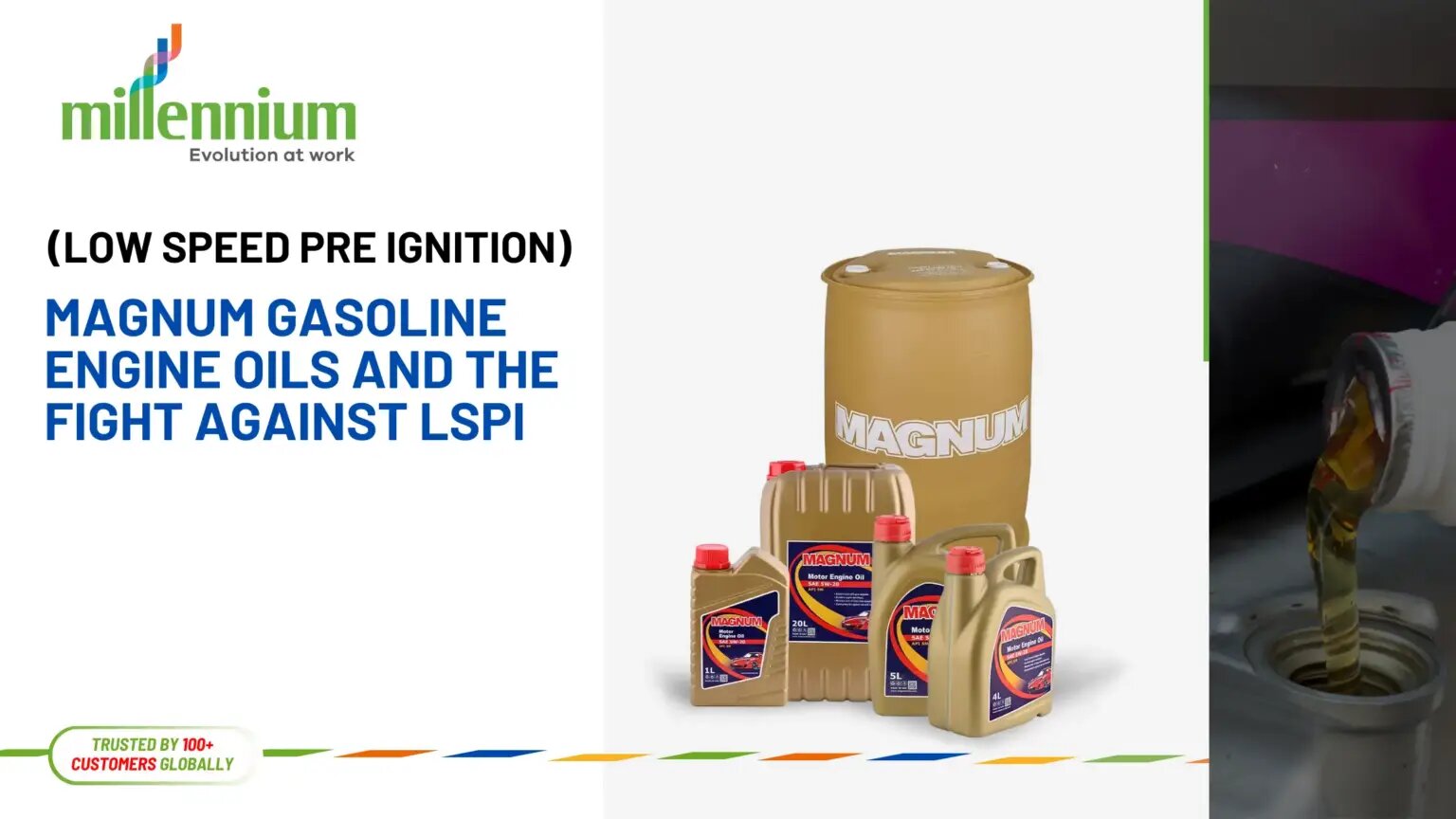Understanding Lspi And Its Impact On Engines
Low-Speed Pre-Ignition (LSPI) is a critical phenomenon that has garnered significant attention in the automotive industry due to its detrimental effects on modern engines. LSPI occurs when the fuel-air mixture in the combustion chamber ignites prematurely, particularly at low speeds and high loads. This unexpected ignition happens before the spark plug fires, leading to a series of uncontrolled pressure spikes that can severely damage engine components.
The occurrence of LSPI is predominantly associated with newer, downsized turbocharged gasoline direct injection (TGDI) engines. These engines are designed for higher efficiency and performance but operate under conditions that make them more susceptible to LSPI. Factors such as increased cylinder pressures and temperatures, along with specific fuel properties, contribute to this early ignition.
The impact of LSPI on engines is profound and multifaceted. One of the most severe consequences is piston damage, where the intense pressure waves can cause physical deformation or even cracking of pistons. This not only compromises engine integrity but also leads to costly repairs or replacements. Additionally, LSPI can result in broken piston rings and damaged cylinder walls, further exacerbating wear and tear within the engine.
Understanding these impacts underscores the importance of addressing LSPI effectively. Automotive engineers and lubricant manufacturers have been working tirelessly to develop solutions that mitigate this phenomenon, ensuring modern engines can achieve their intended performance without succumbing to premature damage caused by low-speed pre-ignition events.
Introducing Magnum Gasoline Engine Oils
Magnum Gasoline Engine Oils have emerged as a pivotal innovation in the world of automotive maintenance, offering a specialized solution tailored for today’s high-performance engines. In an era where engine technology is rapidly evolving, Magnum has meticulously engineered its oils to meet the stringent demands of modern engines, particularly in addressing the pervasive issue of Low Speed Pre-Ignition (LSPI).
Developed with cutting-edge technology and rigorous testing, Magnum Gasoline Engine Oils offer an unparalleled blend of performance and protection. These oils are formulated with advanced additives that specifically target LSPI, a phenomenon that can cause severe engine damage if left unchecked. LSPI is particularly prevalent in newer turbocharged gasoline direct injection (TGDI) engines, which are known for their efficiency and power but also their susceptibility to this destructive form of abnormal combustion.
What sets Magnum apart is its commitment to comprehensive engine care. The formulation includes robust detergents that keep engines clean by preventing deposit formation, anti-wear agents that provide a protective barrier against frictional wear and tear, and antioxidants that ensure long-lasting oil stability even under extreme conditions. This multi-faceted approach not only combats LSPI but also enhances overall engine performance and longevity.
How Do Magnum Oils Combat Lspi?
Low Speed Pre-Ignition (LSPI) is a phenomenon that can cause severe damage to modern turbocharged gasoline direct injection (TGDI) engines. Magnum gasoline engine oils have been meticulously formulated to combat LSPI and safeguard engine components. But how exactly do these oils achieve this?
First and foremost, Magnum gasoline engine oils incorporate advanced additive technology designed specifically to mitigate the conditions that lead to LSPI. These additives work by stabilizing the combustion process, preventing the erratic pressure spikes that characterize LSPI events. One of the key additives used is a detergent-dispersant system that helps in maintaining cleanliness within the engine’s internals, thereby reducing deposit formation on pistons and other critical surfaces.
Moreover, Magnum oils possess excellent thermal stability and oxidation resistance. This ensures that the oil maintains its integrity under high temperatures, which are typical in TGDI engines. By doing so, it prevents oil breakdown and subsequent formation of harmful deposits that could trigger LSPI.
Another significant factor is the careful balance of calcium and magnesium-based detergents within Magnum formulations. While calcium-based detergents are effective at cleaning, they have been linked to increased LSPI occurrences in some studies. By optimizing this balance with magnesium alternatives, Magnum oils effectively reduce this risk while still providing exceptional cleaning performance.
Advantages Of Choosing Magnum Oils For Lspi Prevention
When it comes to the battle against Low-Speed Pre-Ignition (LSPI), choosing the right engine oil can make a world of difference. Magnum Gasoline Engine Oils stand out as a superior choice for several compelling reasons, all of which contribute to their effectiveness in preventing LSPI and ensuring optimal engine performance.
First and foremost, Magnum Oils are formulated with advanced additive technologies specifically designed to mitigate LSPI occurrences. These additives work by stabilizing combustion processes and reducing the likelihood of premature ignition in the combustion chamber. This proactive approach not only prevents potential damage caused by LSPI but also enhances overall engine efficiency and longevity.
Another significant advantage is the rigorous testing that Magnum Oils undergo. Each formulation is subjected to stringent industry-standard tests, including those set by automotive manufacturers who are particularly concerned about LSPI in modern turbocharged engines. This extensive vetting process ensures that Magnum Oils meet or exceed performance requirements, providing drivers with peace of mind knowing their engines are well-protected.
Conclusion: Ensuring Engine Health With Magnum Gasoline Engine Oils
In conclusion, ensuring the health and longevity of modern gasoline engines requires a multifaceted approach, with particular attention to mitigating the risk of Low Speed Pre-Ignition (LSPI). LSPI is a phenomenon that poses significant threats to engine components, leading to potential damage and reduced performance. Recognizing this, Magnum Gasoline Engine Oils have been meticulously engineered to address this critical issue head-on.
Magnum’s formulation stands out due to its advanced additive technology specifically designed to counteract the conditions that lead to LSPI. By incorporating detergents and dispersants that maintain engine cleanliness, these oils significantly reduce the likelihood of deposits forming in critical areas such as the combustion chamber. This cleanliness is paramount as it directly influences the propensity for LSPI occurrences.
Moreover, Magnum Gasoline Engine Oils provide enhanced thermal stability and oxidative resistance. These properties ensure that the oil maintains its integrity under high-temperature conditions often found in modern turbocharged engines. Stable oil performance means consistent protection against wear and tear, further safeguarding against LSPI triggers.

